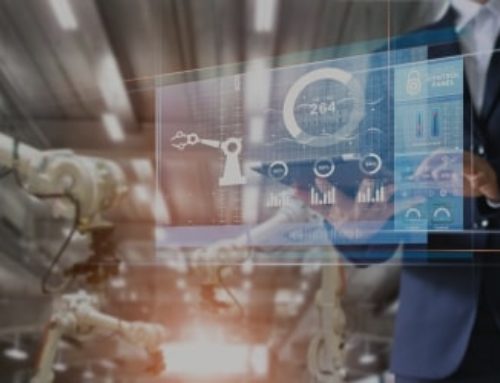Technology is evolving and machines are getting smarter with each passing day. It has been spearheaded in a direction where computers can now mimic human intelligence, now known as Artificial Intelligence (AI).
Labour intensive processes like supply chain management, which also need relentless focus in all its operations can benefit greatly from AI implementation. These fields are expected to go through a significant transformation thanks to the on-going evolution in Artificial Intelligence, Machine Learning and similar smart technologies. It is said to disrupt the industry and lead innovation as well. The result will be absolute automation, right from production to delivery along with an overall improvement in efficiency and speed.
<
b>Impact of Artificial Intelligence in Logistics:
A. Increase in predictive capabilities
With AI, the efficiency of a company in the areas of network planning and predictive demand will improve. It can now be more proactive thanks to capacity planning and accurate demand forecasting features of AI. When a company knows what the market expects, it can promptly move the vehicles to the areas with higher demand and thereby bring down operational costs. Companies can now use data to avoid risks, anticipate events and come up with solutions.
B. Robotics
One cannot mention artificial intelligence without robotics. Though robotics is still considered a futuristic technology, the supply chain sector is already using it to track, locate and move inventory within warehouses. These robots come with deep learning algorithms which helps make autonomous decisions regarding different processes.
C. Big data
Artificial Intelligence is also about big data. For logistics companies, it can help optimize performance and forecast accurate outlooks. When the insights derived from data are used with AI, it can help improve different areas of supply chain management like transparency and route optimization.
D. Computer Vision
When you’re moving cargo across the globe, it’s always a good idea to monitor it all and what’s better than the use of state-of-the-art technology for the same? Now you can see things in a new light by using computer vision, based on AI.
E. Autonomous vehicles
Autonomous vehicles are the next big thing when it comes to Artificial Intelligence. Having driverless trucks can take a while, but the logistics industry is now making use of high-tech driving to increase efficiency as well as safety. A significant change is anticipated in terms of assisted braking, lane-assist and highway autopilot.
In order to achieve lower fuel consumption, better-driving systems are coming up which work on bringing together multiple trucks to have formations. Computers control these formations and are connected with one another too.
Impact of Artificial Intelligence in Supply Chain Management:
A. Contextual Intelligence
AI provides the supply chain with contextual intelligence which can be used to reduce manage inventory as well as operating costs. Companies use AI with Machine Learning to get new insights into different areas like warehouse management, logistics and supply chain management. The technology used here is AI-powered Visual Inspection. This can identify damage and carry out the necessary correction by taking photos of the cargo using special cameras and Intelligent Robotic Sorting to sort palletized shipments, parcels and letters.
B. Insights to Boost Productivity
In order to find the factors and issues that affect the performance of the supply chain, AI combines the capabilities of different technologies like reinforcement learning, unsupervised learning and supervised learning.
C. Demand Forecasting
AI makes it possible to measure and track all the factors to achieve accuracy in demand forecasting. Based on the weather, real-time sales and other factors, it can provide consistent forecasts in a loop. These insights will help improve warehouse management, self-management of inventory systems and forklifts that are self-driving as well as with automated sorting.
D. Supplier Insights
AI can analyse all the data related to suppliers like audits, delivery performance, credit scoring, evaluations and deliver insights based on that, which can be used to make future decisions. This can help companies take informed decisions regarding suppliers.
E. Enhanced Customer Experience
AI can enhance customer relationship for logistics providers. Customers can now use voice-based service to track their shipment and in case of any issues, the customer will be redirected to the customer care team.
F. Improved Production Planning & Factory Scheduling
Companies can now work on analysing specific issues and optimizing them, thanks to AI. With AI having the power to balance constraints, better planning and scheduling can be done even for build-to-order products.
Artificial Intelligence and Transportation:
Issues in transportation arise when system behaviour is hard to outline, based on the predictable pattern affected by human error, traffic or accidents. In these situations, AI can be of great help. AI predicts outcomes based on data analytics. AI is now implemented in a number of methods across the transportation industry.
Enhanced Public Safety:
By real-time tracking of crime data, it has now become possible to ensure the safety of people using public transport as well as pedestrians. This data can be used by police to aid their patrolling efforts and work towards ensuring overall safety and security.
Predict Traffic Patterns:
The traffic flow affects transport significantly. Today a number of AI-based solutions are used to build smarter traffic congestion solutions so as to manage it effectively.
With recent advances in technology like Big Data and Machine Learning algorithms, in the future, AI can aid further innovations and unusual solutions in the supply chain and logistics industries.





Leave A Comment